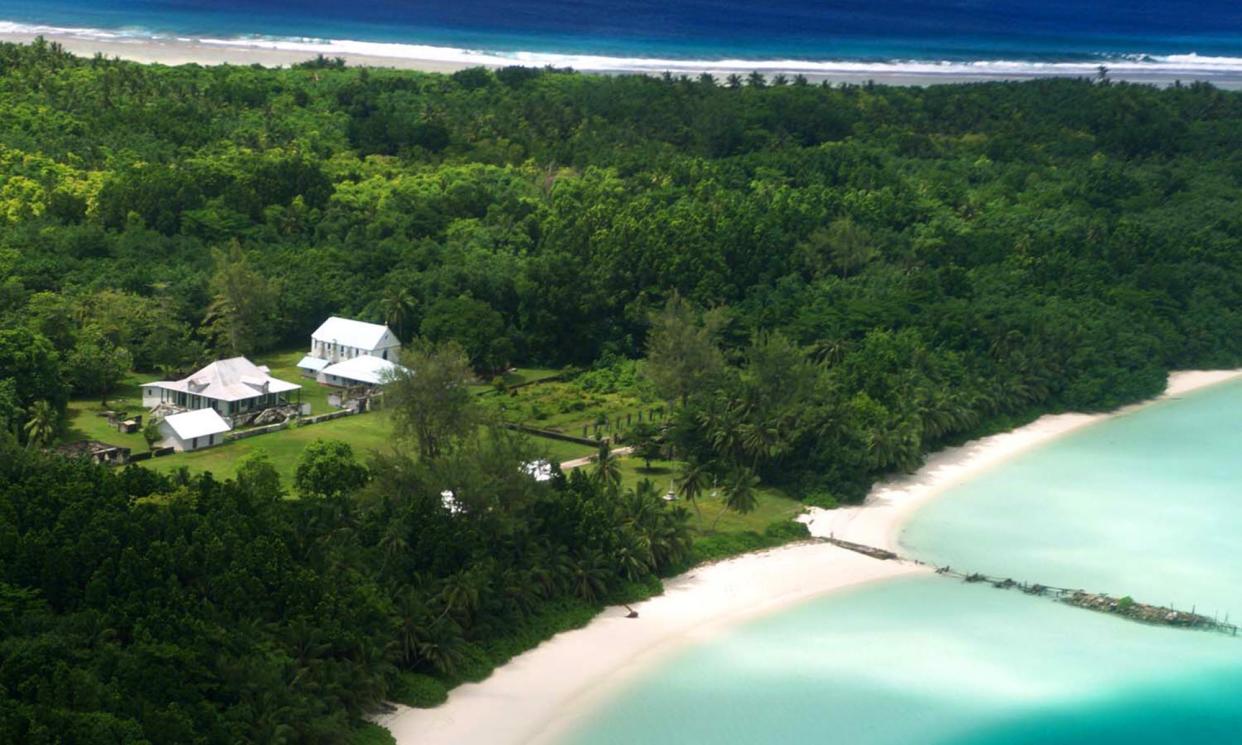UN calls for urgent relocation of 61 asylum seekers stranded on Indian Ocean island

A group of 61 asylum seekers who have been stranded on the remote Indian Ocean island of Diego Garcia for more than two years should be urgently relocated after experiencing violence, abuse and arbitrary detention, according to a UN report.
The inspection report from UNHCR – the UN Refugee Agency – marked “confidential” and disclosed to the Guardian and the BBC by the supreme court of British Indian Ocean Territory (BIOT), is the first to be carried out since a group of asylum seekers, mainly Tamils from Sri Lanka, arrived on the island in October 2021. They were rescued and taken to Diego Garcia after a boat they were travelling in, hoping to reach Canada to claim asylum, got into difficulty.
The report is damning and found that the group, mainly asylum seekers, with a small number granted refugee status, fall under the “effective control” of the UK government, have been subjected to conditions of “arbitrary detention” and should be urgently relocated.
The UN inspectors heard allegations of sexual harassment and abuse against women and children by other asylum seekers, and identified high levels of mental distress and significant risk of suicide and attempted suicide. They found the detention of 16 children among the 61 “particularly troubling” and said at least some of those found to be in need of international protection should be transferred to the UK.
The asylum seekers are held in a fenced-in area the size of a football pitch, guarded by G4S staff, they are not allowed to cook for themselves and have been bitten by rats. The rodents, which are “ubiquitous” on the island, gnaw holes in the fabric of their tents.
One mother told the inspectors “living here is like living in hell”, while children said they dreamed of doing normal things like going on picnics and eating ice-cream. One child said they were sad to see that a guard dog could be outside the fence while they could not.
The UK asserts that the island is part of British Indian Overseas Territory. It is administered from London but is constitutionally separate from the UK. The UN general assembly says the island is part of Mauritius.
The UNHCR report was disclosed during a case brought in the supreme court of BIOT by a group of the asylum seekers that their treatment on the island constitutes unlawful detention.
Simon Robinson of Duncan Lewis solicitors, representing some of the group, said: “The UNHCR, who have unrivalled experience in refugee law, emphatically found the conditions in which our clients have been held in amount to arbitrary detention.”
Tessa Gregory of Leigh Day solicitors, representing others in the group, described the condition on Diego Garcia as “appalling” and said that lawyers had been denied access to visit their clients on the island.
A Foreign Office spokesperson said: “BIOT is not a suitable location for migrants, which is why we have been working tirelessly to process the migrants’ claims for protection and to find a suitable third country for those whose claims are upheld. At all times, the welfare and safety of migrants on BIOT has been our top priority.”
Foreign Office sources said they did not accept that the conditions on BIOT amounted to arbitrary detention.


